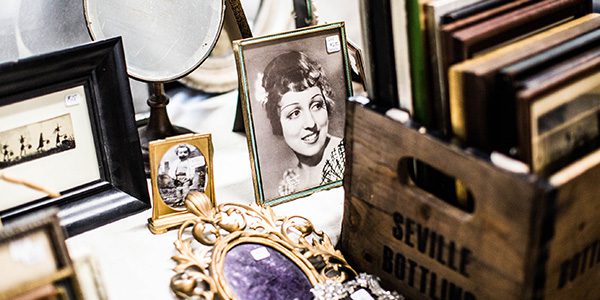Why Seniors Should Declutter Now
Why Seniors Should Declutter
Your parent or loved one has lived a long, full life, which probably means that they have a lifetime worth of belongings in their home. As we grow up, we keep items that are associated with memories or hold sentimental value, and as time passes, this can lead to a cramped and cluttered house. There are many reasons to start decluttering your loved one’s home right now; we have narrowed it down to 7 of the most important reasons. Decluttering now can help keep them safe, healthy, and will alleviate a lot of stress on you in the future. Make sure to continue for tips on how to get started.
1. Embrace the Sentimental
As previously mentioned, your loves one’s home is filled with memories and sentimental items. Consider cleaning as a quality time between the two of you and enjoy the happy memories you discover while decluttering together. It will bring you closer and allow you to make new memories while reminiscing about the old. You might even learn things about them that you didn’t previously know!
2. Reduce Risks
As your loved one ages, they will likely begin to slow down and experience more trouble navigating throughout their home. Clutter and excess belongings can make their house feel cramped and become potentially dangerous, especially if they use a cane or walker to assist them. Reducing clutter in their home decreases the probability of a dangerous fall, which could lead to injuries and further decrease their mobility. Not only is it a mobility risk, it is also dangerous in the event of a fire. Clutter can easily spread house fires while slowing those in the house down from escaping or being rescued. Getting rid of any clutter that blocks doorways and hallways is a good start to creating a safer home for your loved one.
3. Find Items Easily
Studies show that we spend about two and a half days a year looking for lost belongings. Losing something you thought you knew the place of is incredibly frustrating. If your loved one suffers from memory impairment or a similar diagnosis, losing items can be a very confusing experience for them. By helping them reduce clutter in their home, you also reduce the chance of lost items and the time it takes to find them.
4. Make the Home Sellable
You may want to get ready to sell for a wide variety of reasons. Maybe they are moving into your home so that you can assist them. They may also choose to downsize and move into a senior living community where there are on-site healthcare services. If they are still able to live on their own, they may choose to downsize for a few reasons, including:
- Less housework
- (Potentially) No climbing up and down stairs
- Less maintenance
- Fewer Expenses
No matter what the specific reason for moving, decluttering their home is essential if you want to sell it quickly and for asking price. Homes without clutter sell substantially faster and for more money than those that are cluttered. In fact, studies show that staged homes sell 88% faster and for around 20% more money than those that are not.
5. Psychological benefits
Clutter can have negative psychological effects on those exposed to it. Studies show that clutter increases stimuli, which makes it more difficult to relax both psychically and mentally. It is known to cause or worsen anxiety and depression and make you feel overwhelmed and stressed. For someone living alone, it can result in a sense of shame, and make them want to isolate themselves. Seeing clutter all the time may make them feel helpless and embarrassed by their home, which in turn causes them to be less likely to invite people over.
6. Donate and Save Money
Consider donating, as it is a great option for a variety of reasons. For one, it reduces waste and keeps a lot of good quality items from ending up in a landfill. Instead, you can ensure that it goes to shelters, nonprofits, or places like Goodwill, who use the profits from your items to provide job training opportunities to underserved demographics. Donating items is also a good option because it is much easier to get your loved one to let go of certain items if they know it will be helping others rather than going into the garbage. You can reduce clutter while also feeling good that you gave back to your community. Plus, as a reward for giving to your community, when you bring those items to the charitable organization of your choice, you can get a tax write-off for your donation.
7. Improve air quality
Clutter drastically decreases the air quality in your home. If your loved one suffers from allergies or asthma, the clutter in their home could be worsening their symptoms. When you don’t use items, they begin to collect environmental allergens like dust mites, pet dander, mold, and mildew. Having too many items in your home makes it hard to clean, especially as you age. These allergens find homes in closets, upholstery, bedding, carpets, crevices, and surfaces. Eliminating clutter will improve the air quality in their home and make it easier for them to clean and maintain moving forward.

Now that you know why it is so important to begin the conversation of decluttering with your loved one, you will likely need to know where to start.
It may not be an easy conversation to have with them. As stated at the beginning of this article, a lot of the belongings in their home hold precious memories and it will be hard for them to come to terms with letting some of it go. It’s important to not push and to be understanding of the emotional toll of getting rid of items. It may help to gently remind them of some of the reasons listed above. At the end of the day, decluttering will lead to a better, safer living situation.
How to start:
1. Set aside time to start
- You should only tackle one area or room at a time to avoid becoming overwhelmed. It may help to start with an easier room where things are less valuable or sentimental like a powder room or kitchen. Don’t try to tackle the whole house in a day or a weekend. Take your time.
2. Stock up on supplies
- You are going to need things like trash bags, empty boxes, sharpies, cleaning supplies, and paper towels. We suggest only using boxes you know the origin of or that you buy new. Free boxes can be appealing, but if they were used to hold food, they can contain bacteria and hidden pests that may damage whatever you pack inside of the box.
3. Sort items into piles
- Grab boxes and label them into three categories: keep, donate, or throw away. Go through every single item, and if your loved one is having a hard time, make sure they have the final say of what stays or goes. Since you’re going room by room, it should be easy to put back everything in the stay box to its rightful place.
4. Be okay with keeping things
- If you are unsure of what to do with an item, keep it for now – but don’t forget about it. In a few months, check back on the item and reassess it. If it hasn’t been used or the feeling about it has changed, it may be time to toss or donate it.
5. Make it fun!
- Take this opportunity to enjoy the memories and quality time with your loved one. Don’t make this decluttering journey feel stressed or rushed, but rather make it something you both look forward to. Put on music or your favorite television show during and treat yourself to dinner or ice cream afterward to reward yourselves for a job well done.
To help with your decluttering process, you may opt to rent a storage unit. It will help you get the clutter out immediately, allowing you to slowly declutter instead of having to do it all at once. Renting a storage unit also gives you the option of keeping more of the sentimental items. To get started, find a storage facility near you, where our professional property managers will help you select the unit that is right for you.





